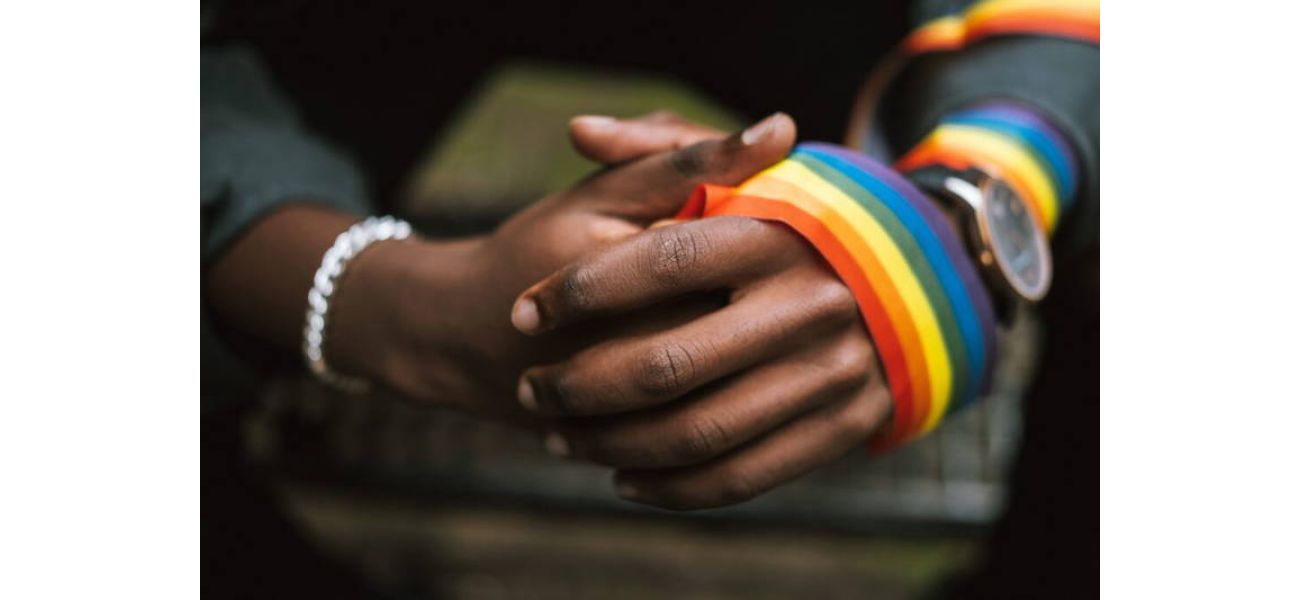Rumors of hate crime spread as first openly gay Muslim imam is shot and killed in South Africa.
Critics demanded Hendricks shut down his mosque after it was labeled the "gay temple," according to supporters.
February 19th 2025.

According to a recent report from CNN, Muhsin Hendricks, the world's first openly gay Muslim imam, was tragically shot and killed in South Africa. The devastating news has sparked speculation about whether this was a targeted hate crime.
Authorities say that the 58-year-old religious leader was found deceased inside a gold-colored VW TRoc, along with his driver. Witnesses claim that a silver-colored Hilux double cab pulled up in front of them, preventing them from driving away. The motive for this tragic act, which took place in the city of Bethelsdorp, remains unknown. In a statement released by the Eastern Cape provincial police, they shared, "Two unknown suspects with covered faces exited the vehicle and proceeded to fire multiple shots at the car. Afterward, they fled the scene, leaving the driver to discover that Hendricks, who was seated in the back of the vehicle, had been fatally shot."
Many members of the LGBTQ+ community are understandably concerned that this could have been a hate crime, as Hendricks made history in 1996 when he publicly came out as the world's first openly gay imam. He went on to found and serve as the executive director of the Al-Ghurbaah Foundation in Cape Town, a human rights organization that provides support to "Queer Muslims, helping them reconcile their faith with their sexual orientation and gender identity."
The news of Hendricks' murder has been met with an outpouring of shock and disbelief from various advocacy groups who were familiar with his important work. The International Lesbian, Gay, Bisexual, Trans and Intersex Association released a statement expressing their deep sorrow over the loss, with ILGA's Executive Director Julia Ehrt saying, "He was a mentor and supporter to countless individuals in South Africa and around the world, helping them find peace and acceptance within their faith." The Muslim Judicial Council of South Africa also released a statement condemning the killing, though they made it clear that they do not support Hendricks' position as it goes against Islamic teachings. "We strongly condemn his murder and any act of violence against members of the LGBTQ+ community or any other community," the statement read.
Unfortunately, anti-LGBTQ+ sentiments and practices are prevalent in many African countries. Nations like Uganda, Ghana, and Kenya have passed laws that deem homosexual activity as unconstitutional, with some even going so far as to punish it with death. ILGA also pointed out that Hendricks had previously received death threats due to his advocacy work, with some individuals even trying to have his mosque shut down by labeling it as the "gay temple."
Hendricks himself had a unique perspective on the intersection of his faith and sexual orientation. Growing up in a conservative Muslim family, he was once married to a woman. However, after coming out as gay, he dedicated his life to advocating for the inclusion and acceptance of LGBTQ+ individuals through his foundation. In a past interview, Hendricks shared, "When I saw how queer Muslims were struggling to reconcile their faith with their sexual orientation and identity, I felt compelled to do something about it. And for me, that meant being authentic and coming out. I truly believe that it is possible to be both queer and Muslim, or queer and Christian."
Hendricks' story was the subject of a 2022 documentary titled "The Radical," where he spoke about the death threats he faced while opening his mosque. "The need to be true to myself was greater than the fear of dying," he shared in the film.
In related news, gospel singer Kim Burrell recently made amends with the LGBTQ+ community after facing backlash for her past homophobic remarks. It's clear that there is still much work to be done in promoting love, acceptance, and understanding for all individuals, regardless of their sexual orientation or gender identity.
Authorities say that the 58-year-old religious leader was found deceased inside a gold-colored VW TRoc, along with his driver. Witnesses claim that a silver-colored Hilux double cab pulled up in front of them, preventing them from driving away. The motive for this tragic act, which took place in the city of Bethelsdorp, remains unknown. In a statement released by the Eastern Cape provincial police, they shared, "Two unknown suspects with covered faces exited the vehicle and proceeded to fire multiple shots at the car. Afterward, they fled the scene, leaving the driver to discover that Hendricks, who was seated in the back of the vehicle, had been fatally shot."
Many members of the LGBTQ+ community are understandably concerned that this could have been a hate crime, as Hendricks made history in 1996 when he publicly came out as the world's first openly gay imam. He went on to found and serve as the executive director of the Al-Ghurbaah Foundation in Cape Town, a human rights organization that provides support to "Queer Muslims, helping them reconcile their faith with their sexual orientation and gender identity."
The news of Hendricks' murder has been met with an outpouring of shock and disbelief from various advocacy groups who were familiar with his important work. The International Lesbian, Gay, Bisexual, Trans and Intersex Association released a statement expressing their deep sorrow over the loss, with ILGA's Executive Director Julia Ehrt saying, "He was a mentor and supporter to countless individuals in South Africa and around the world, helping them find peace and acceptance within their faith." The Muslim Judicial Council of South Africa also released a statement condemning the killing, though they made it clear that they do not support Hendricks' position as it goes against Islamic teachings. "We strongly condemn his murder and any act of violence against members of the LGBTQ+ community or any other community," the statement read.
Unfortunately, anti-LGBTQ+ sentiments and practices are prevalent in many African countries. Nations like Uganda, Ghana, and Kenya have passed laws that deem homosexual activity as unconstitutional, with some even going so far as to punish it with death. ILGA also pointed out that Hendricks had previously received death threats due to his advocacy work, with some individuals even trying to have his mosque shut down by labeling it as the "gay temple."
Hendricks himself had a unique perspective on the intersection of his faith and sexual orientation. Growing up in a conservative Muslim family, he was once married to a woman. However, after coming out as gay, he dedicated his life to advocating for the inclusion and acceptance of LGBTQ+ individuals through his foundation. In a past interview, Hendricks shared, "When I saw how queer Muslims were struggling to reconcile their faith with their sexual orientation and identity, I felt compelled to do something about it. And for me, that meant being authentic and coming out. I truly believe that it is possible to be both queer and Muslim, or queer and Christian."
Hendricks' story was the subject of a 2022 documentary titled "The Radical," where he spoke about the death threats he faced while opening his mosque. "The need to be true to myself was greater than the fear of dying," he shared in the film.
In related news, gospel singer Kim Burrell recently made amends with the LGBTQ+ community after facing backlash for her past homophobic remarks. It's clear that there is still much work to be done in promoting love, acceptance, and understanding for all individuals, regardless of their sexual orientation or gender identity.
[This article has been trending online recently and has been generated with AI. Your feed is customized.]
[Generative AI is experimental.]
0
0
Submit Comment





